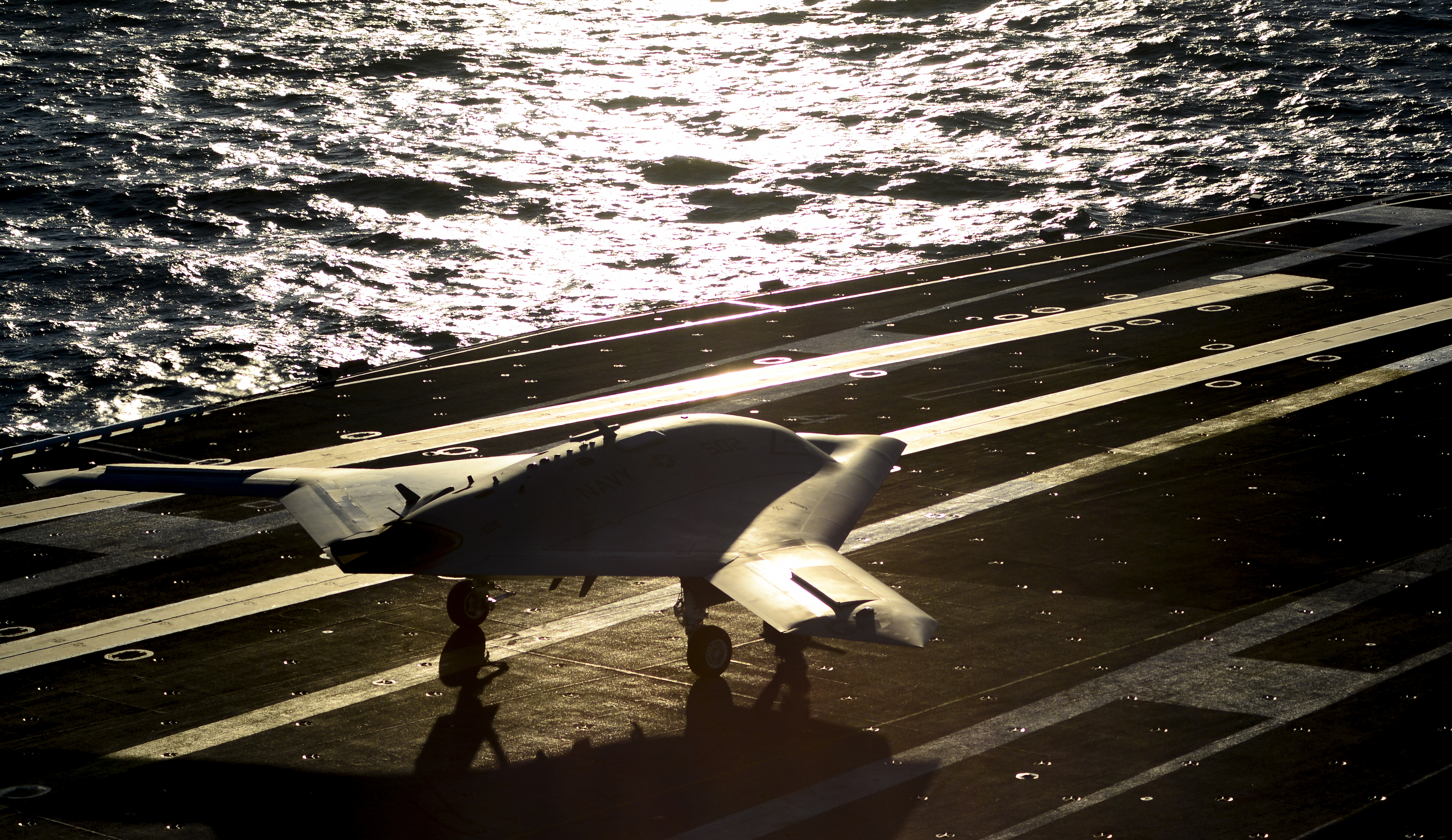
The chairman of the Senate Armed Services Committee (SASC) is calling on the Department of Defense and the Navy to develop a stealthy and lethal unmanned aerial vehicle (UAV) for the Navy’s Unmanned Carrier Launched Surveillance and Strike (UCLASS) aircraft, according to a Tuesday letter to Secretary of Defense Ash Carter obtained by USNI News.
In his letter to Carter, Sen. John McCain (R-Ariz.) encouraged the Navy and the Pentagon to craft an aircraft that features broadband stealth, an internal weapons payload of 4,000 pounds and a days long refueled mission endurance — capabilities that don’t align to the Navy’s last reported list of requirements.
“I am concerned that the current requirements proposed for the UCLASS program place a disproportionate emphasis on unrefueled endurance to enable sustained ISR support for the carrier strike group, which would result in an aircraft design with serious deficiencies in both long-term survivability and its internal weapons payload capacity,” read the letter.
“Developing a new carrier-based unmanned aircraft that is primarily an ISR platform and unable to operate effectively in medium- to high –level threat environments would be operationally and strategically misguided.”
Most recently, the Navy has said it wants a UCLASS that would serve primarily as information, surveillance and reconnaissance (ISR) asset that carrier strike group (CSG) would use between periods of manned flights able to fly unrefueled for up to 4,000 nautical miles and posses the ability to strike uncontested targets.
In addition to his stance on the requirements of UCLASS, McCain called for the Navy to conduct additional testing with the two Northrop Grumman X-47B Unmanned Combat Air Systems Demonstration (UCAS-D) aircraft.
McCain’s position reflects the vision of a carrier UAV with the equivalent payload of a Lockheed Martin F-35C Lighting II Joint Strike Fighter (JSF) that was first expressed as part of the 2006 Quadrennial Defense Review.
Largely silent on the issue last year, McCain’s entrance into the UCLASS debate follows frequent and pointed questions from House Armed Services Seapower and Projection Forces subcommittee chairman Rep. Randy Forbes (R-Va.) on the Navy’s direction of the program.
Last year, restrictions on funding for the UCLASS program and an internal Pentagon review of the joint portfolio of ISR UAVs placed a pause on the request for proposal (RfP) for the air segment of the system until Fiscal Year (FY) 2016, officials said during the release of the FY 2016 budget.
Defense officials reached Tuesday by USNI News said the internal Pentagon ISR review — started by Deputy Defense Secretary Bob Work last year — is still ongoing.
McCain’s letter also follows closely the release of the latest Navy, Marine Corps and Coast Guard strategy revision emphasizing an “All Domain Access” capability to counter emerging anti-access area denial (A2/AD) threats around the world.
In February, Work said UCLASS would need to fit into the larger portfolio of U.S. military unmanned systems.
“We decided this year we were almost ready to launch the RFP but we decided to take a pause because we want to consider the UCLASS as part of the joint family of unmanned surveillance and strike systems and make sure that we’re going after the right capabilities,” Work said during the WEST 2015 conference in San Diego, Calif.
“In addition to looking at capabilities that we already have and using them differently, we’re going to make sure in this environment, that when we go after a new platform, it’s the platform that we need from a joint perspective.”
The Navy, however, is still working on the ground segment and other components of UCLASS — believed to be called RAQ-25 by the service — pending the results of the ongoing review and the start of a competition of the air segment of the program, Naval Air Systems Command (NAVAIR) officials told USNI News last week.
Four companies —Lockheed Martin, Boeing, General Atomics and Northrop Grumman— have received preliminary contracts from NAVAIR to develop concepts for UCLASS ahead of the FY 2016 RfP.
As a result of the pause, the service has pushed UCLASS initial fielding from 2020 to 2022 or 2023.





